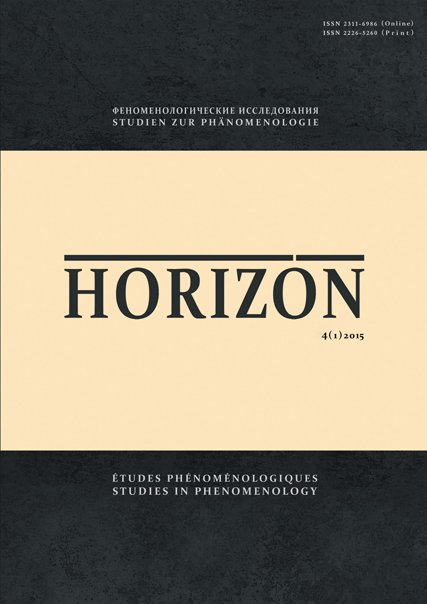ИСТОРИЧЕСКИЕ ИСТОКИ
ИНТУИТИВНОЙ ОЧЕВИДНОСТИ ИНДИВИДУАЛИЗМА
SOME HISTORICAL SOURCES
OF THE APPARENT INTUITIVE TRUTH OF INDIVIDUALISM
Author(s): FEDOR STANZHEVSKIYSubject(s): Phenomenology, Hermeneutics
Published by: Издательство Санкт-Петербургского государственного университета
Summary/Abstract: The article is an attempt to retrace some sources of individualism, first of all in the philosophy of mind.Individualism here constitutes an endeavor to separate human mind from the world. The necessity oftracking the genesis of individualism is due to the fact that individualism appears to many as intuitivelyobvious. However, this apparent evidence results from our historical tradition or, rather, from some ofits components. This individualistic component of the western tradition stems to a great extent from theCalvinist ideology. The idea of predestination in Calvin’s theology was far from belonging to the pureorder of thought: in fact it indelibly marked the whole of social practices in Calvinist and in particularpuritan societies. This idea, according to Max Weber, Louis Dumont and Charles Taylor, largely contributedto the making of modern individualism. This range of individualist ideas and practices receivedmuch impetus in the philosophy of John Locke. On the one hand, Locke’s philosophy as well as that ofDescartes contains some potentiality different from the individualist one. On the other hand, Descartesand Locke lay the foundations of the representational view on mind, which severs the ties and bondsthat exist between man and the world. The subject becomes an individual, enclosed in the micro-worldof its own representations. This individualization in philosophy goes in pair with social individualization.The latter form of individualization is reflected in a literary form in the famous «Robinson Crusoe»by Defoe. In its turn, Leibniz’s Monadology is a manifesto of philosophical individualism. On thewhole, this individualist tendency of Modernity still continues to guide our understanding and selfunderstanding,often without our knowing it. If one wants to formulate a different, non-individualistmetaphysics, one needs to seek inspiration in the non-individualist part of the tradition of Modernity.
Journal: Horizon. Феноменологические исследования
- Issue Year: 4/2015
- Issue No: 1
- Page Range: 38-69
- Page Count: 32
- Language: Russian

